21 Seinfeld Quotes That We'll Never Stop Repeating
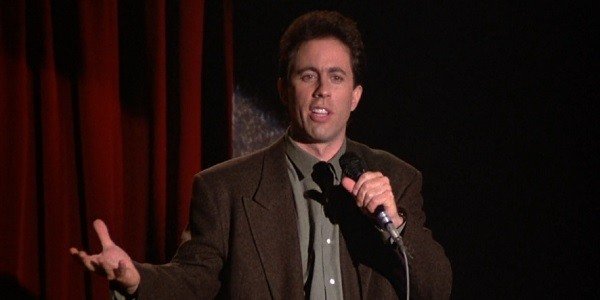
Few sitcoms have managed to develop a reputation and fandom quite as sterling as Seinfeld has. The show's run remains one of the greatest of all time, and it's arguable that nary a single bad episode of Seinfeld was ever produced. (Some were worse than others, of course.) Along the way, Jerry Seinfeld and Larry David's uniquely cohesive collaboration introduced us to an army of iconic characters and even more genuinely fantastic conversations and one-liners.
Although it has been nearly two decades since Seinfeld went off the air at NBC, there are plenty of observations, interjections and realizations that we still repeat on a regular basis to this very day. With the show's eternally top-notch library in mind, let's dive in and discuss some of the classic Seinfeld quotes that will never leave our collective lexicon.
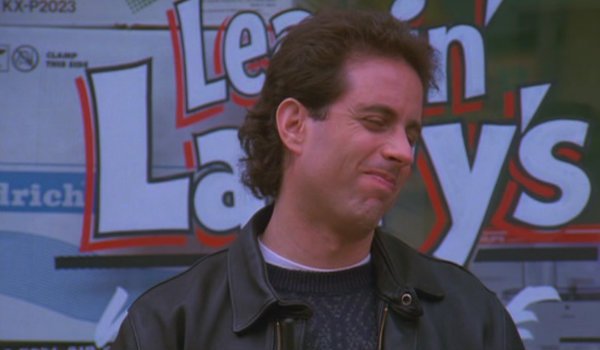
"That's A Shame"
What's the Context?
It has become generally accepted that Jerry Seinfeld was the show's "Even Steven" character, but his friends (or side characters) were often not quite so lucky. Whenever tragedy would befall someone in his life, Jerry would merely look on, delivering this line with seemingly minimal care or empathy.
How We Use It Today
We all want to be the lucky person in our respective friend groups, don't we? Though Seinfeld has been off the air for years, it's not uncommon to hear die-hard fans utter a dry version of "that's a shame" in the general direction of a scheme gone wrong -- especially when the perpetrator of said scheme is your very own Newman. See also: when notoriously awful famous people get in trouble.
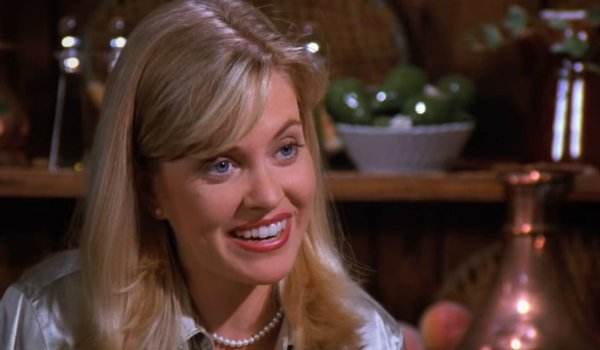
"She Had Man-Hands"
What's the Context?
Your Daily Blend of Entertainment News
Jerry dated an impressive amount of women over the course of Seinfeld's run, but few can compare to Gillian. Despite being practically perfect, Jerry's shallowness shined through when he settled on one definitive flaw: Gillian's oddly large and masculine hands.
How We Use It Today
While we are sure that at least one of you has encountered a woman with more masculine-than-average hands at some point in your lives, the phrase has taken on a grander meaning than its initially narrow focus. In essence, "man-hands" can mean anything that someone sees wrong in a potential romantic partner. Just be warned, it has more to do with your shallowness than anything wrong with them. It's always about you.
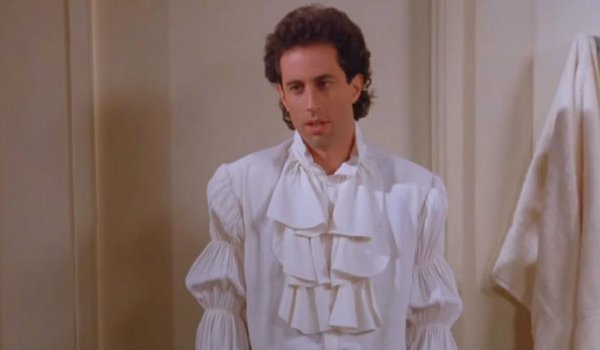
"But I Don't Wanna Be A Pirate!"
What's the Context?
In the Seinfeld-verse, Jerry was not a huge celebrity, but he was a celebrity nonetheless. When Kramer tried to use that celebrity status to push the puffy shirt style on an unsuspecting world, Jerry agreed, but made it abundantly clear: "But I don't wanna be a pirate!"
How We Use It Today
At some point in your life, you have probably been asked to wear or do something that you did not want to wear or do, to make a friend or family member happy. In those instances, a Seinfeld fan always comes back to Jerry's refusal to wear the puffy shirt as a pitch-perfect way to turn down an unappealing piece of clothing or task.
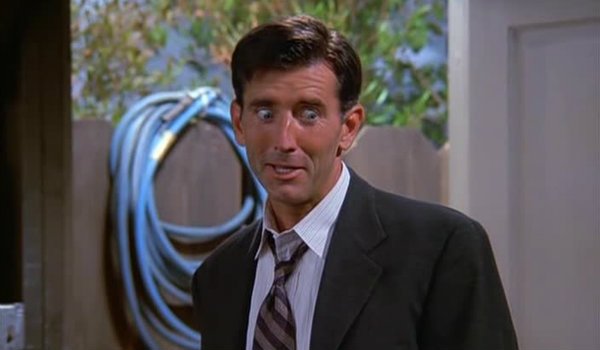
"Serenity Now!"
What's the Context?
When Frank Costanza and Cosmo Kramer needed a method to quell their ever-increasing spurts of rage, they turned to the initially calm phrase "Serenity now." Little did they know that it only buried the anger beneath the surface, creating a tension that would eventually explode. If only they would have listened to Lloyd Braun, Kramer would not have destroyed twenty-five of George's computers.
How We Use It Today
Despite the fact that Seinfeld made it very clear that "Serenity now!" should not be used as a method to keep anger at bay, that is precisely what many fans have started doing over the years. Whenever something in life gets you down, just remember: Serenity now, insanity later.
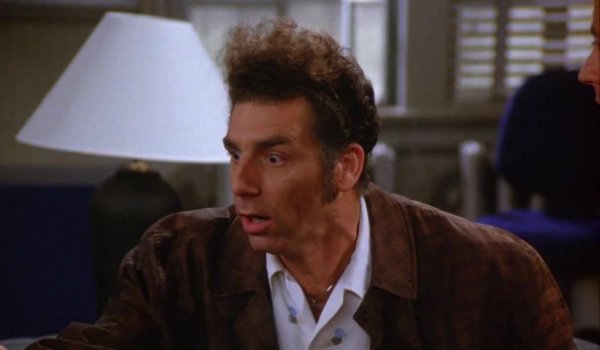
"Giddy Up!"
What's the Context?
There's absolutely no question that Cosmo Kramer was the most excitable and generally fun-loving member of the core Seinfeld quartet. With that in mind, one of his most beloved recurring lines was the enthusiastic expression of "Giddy up!" whenever something went his way."
How We Use It Today
Pretty much all of us have wanted to be as charming, outgoing, and generally likable as Kramer at one time or another. After all, things always seemed to work out for the bizarre 5B resident and his "Lure of the Animal." Whenever we feel an urge to go on an adventure, we should not fight it. "Giddy up!"
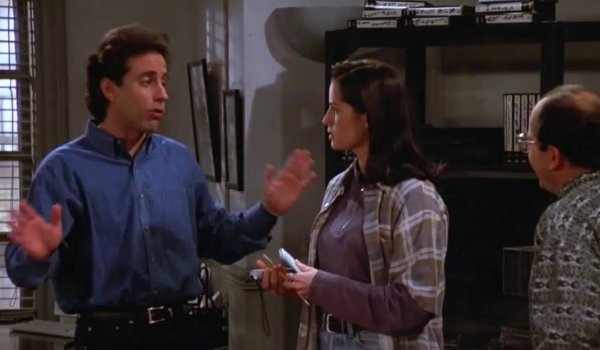
"Not That There's Anything Wrong With That!"
What's the Context?
Jerry and George bickered like an old, married couple on Seinfeld, but the last thing that they wanted was to be confused with a real couple. When a writer mistook their friendship for a romantic relationship, they vehemently denied that they were gay, and were always quick to make it clear they weren't against same-sex relationships in general.
How We Use It Today
The LGBT community has seen some pretty impressive strides in equality and acceptance in the years since Seinfeld went off the air, so this quote doesn't necessarily apply to mistaken sexuality anymore. These days, we use "not that there's anything wrong with that" to deny involvement in anything that's not objectively bad; we're just not into it.
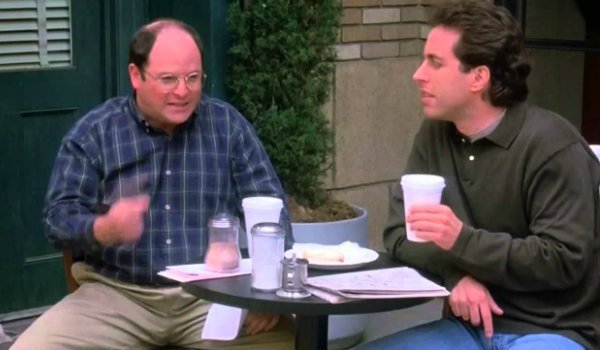
"Summer of George!"
What's the Context?
At a certain point, George Costanza just needed a break from the harsh reality of his existence. In order to cope, he decided that he would embark upon the "Summer of George," in which he devoted time to himself. Of course, as we now know, things didn't end up panning out for him in the end, but his intentions were pure and promising.
How We Use It Today
Much like George Costanza, we all need some "me time" now and then. For many longtime fans of Seinfeld, "Summer of George" has become shorthand to signify that you're going to take some time for yourself so you can relax and forget about all of your troubles. Troubles that are likely nowhere near as weird as George's.
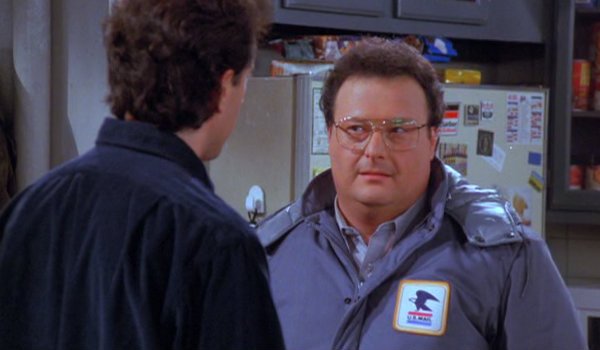
"Hello, Newman..."
What's the Context?
Of all the iconic lines ever repeated on Seinfeld, "Hello, Newman" is probably one of the most commonly used by the various characters. On paper, it's a simple greeting for Jerry's mailman neighbor/Kramer's best friend. In practice, its slow delivery makes it a sign of pure contempt.
How We Use It Today
While I certainly hope that most of us don't have an army of enemies waiting for us in the world, or down the hall, there's a good chance that we each have one or two metaphorical rivals. In true Seinfeld fashion, delivering a subtle "Hello, Newman" can instantly tell them where you stand. Side note: it can also be paired with the exasperated: "Newman!" while making a fist when things go wrong.
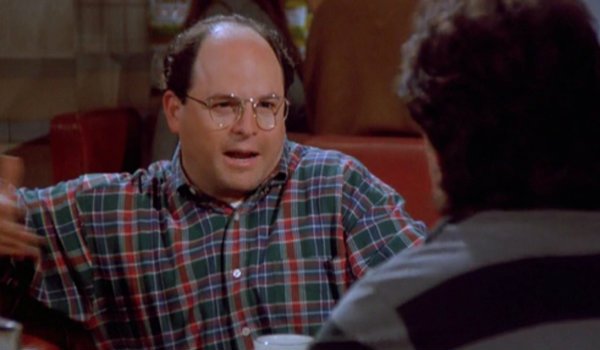
"It's Not A Lie If You Believe It."
What's the Context?
Arguably no line ever said by George Costanza cuts to the core of his personality more than this sage piece of advice from "The Beard." Jerry was terrified about the possibility of having to take a polygraph test to prove that he did not watch Melrose Place, and George reassured him that he could make his lies believable enough if he truly believed in himself.
How We Use It Today
At some point, we are all going to need to tell a white lie here and there. When that happens, you just need to remember: it is not a lie if you believe in it.
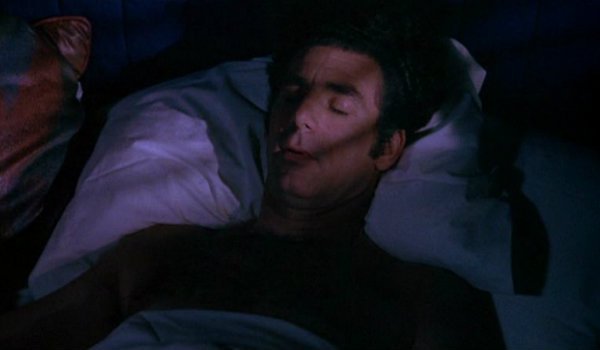
"Master Of My Domain."
What's the Context?
Self-control was never a strong suit of Jerry Seinfeld and his gang of self-preserving buddies, but they all put each other to the test to see who could go the longest without "gratifying themselves" in the now-iconic contest episode. When it came down to George and Jerry, it became a battle of wits to see who was the master of his domain (even though George cheated, naturally).
How We Use It Today
"Master of my domain" basically means the exact same thing these days, except it doesn't necessarily have to refer to that one, specific, less-than-savory personal activity. If you're able to show an impressive degree of self-control and personal restraint in any aspect of your life, then you indeed are master of your domain.
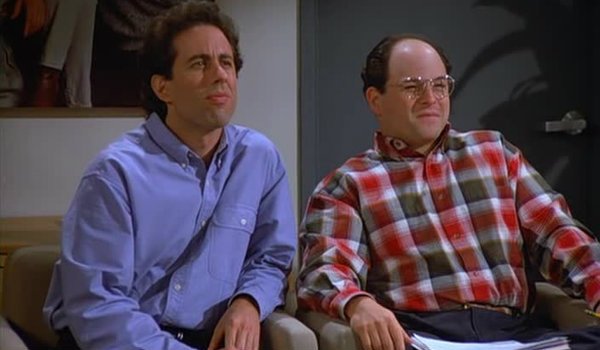
"The Show Is About Nothing!"
What's the Context?
Perhaps no single phrase epitomized George Costanza's obliviousness to social cues than his pitch to the folks at NBC when he joined Jerry in Los Angeles to discuss a potential pilot. Despite their apparent interest in a substantive sitcom for the up-and-coming series, George continued to insist: the show is about nothing.
How We Use It Today
It is no secret that the Jerry subplot of Seinfeld was based heavily on Larry David and Jerry Seinfeld's quest to get Seinfeld (then known as The Seinfeld Chronicles) off of the ground. These days, George's description of the fictional sitcom is the exact way in which most of us describe Seinfeld itself.
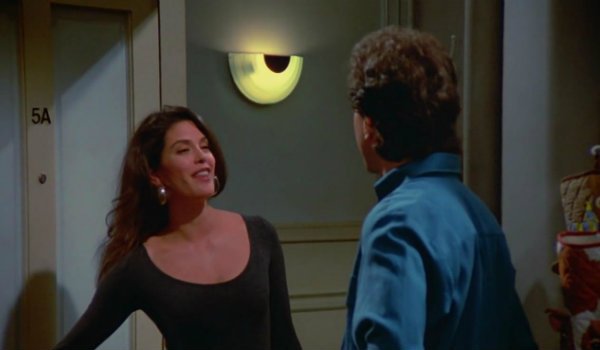
"They're Real, And They're Spectacular."
What's the Context?
Not only is this one of the most iconic lines ever uttered by any Seinfeld side character (in this case, it was Teri Hatcher's Sidra referring to her breasts), but it was also one of the show's final callback jokes. At the end of the series finale, lawyer Jackie Chiles says it as he gives up on his longtime clients. To be blunt about it: Sidra's breasts apparently were real, and they apparently were spectacular.
How We Use It Today
This one is pretty self-explanatory. If anyone says this when you are questioning the authenticity of a body part or other subject of contention, then it would probably be wise for you to believe what they are saying.
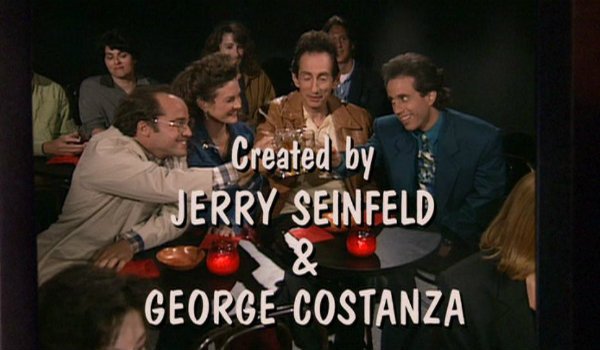
"He's My Butler!"
What's the Context?
Catchphrases were a big part of 1990s sitcoms, and the fictional Jerry was no different. In one of the few scenes that we ever saw from Jerry and George's unsuccessful pilot, the big punchline of the episode was one of Jerry's most enduring non sequitur lines: "because he's my butler."
How We Use It Today
"Because he's my butler," is one of Seinfeld's more self-aware and generally meta lines. As a result, the quote is typically reserved for discussions about lousy acting or weak writing in the world of television. (Or, possibly, when someone is referring to their butler.) Just make sure to lay the Jerry Seinfeld voice on as thick as possible when you use this one.
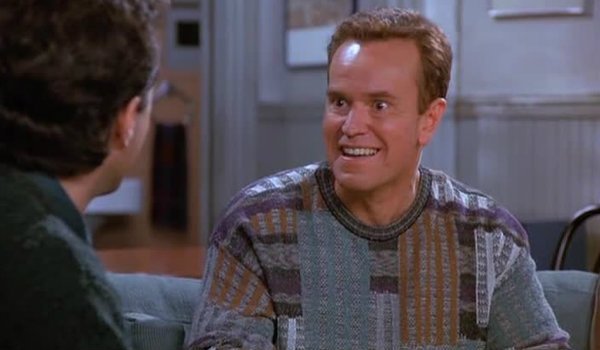
"Gold, Jerry! Gold!"
What's the Context?
Sure, Kenny Bania might've been one of Jerry Seinfeld's most annoying acquaintances, but he also managed to lock down one of Seinfeld's most universal (and enthusiastic) catchphrases. Bania was pretty easy to impress, and whenever something would catch his fancy he would belt out his classic line: "It's gold, Jerry! Gold!" Still no word on if that's how he responded to the soup at Mendy's though.
How We Use It Today
Cynicism is overrated, isn't it? Bania was one of the few genuinely optimistic characters on Seinfeld, and his ecstatic catchphrase has infected us in the years since it went off the air. If something is gold, we call it like it is. It's gold, Jerry! Gold!
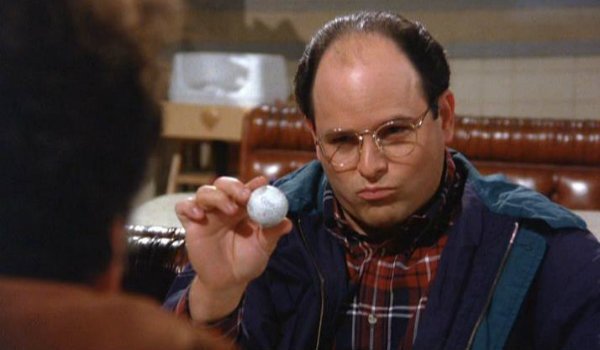
"The Sea Was Angry That Day, My Friends!"
What's the Context?
George Costanza had many jobs, but one of his most memorable occupations was one that he never actually had in the first place: marine biologist. While on a date, George was backed into a lie-structured corner during an encounter with a beached whale, and embraced his fake job. Later, he used the above phrase while eloquently recounting the tale of removing a golf ball from the blowhole of the enormous fish (mammal, whatever).
How We Use It Today
Although this is a particular story that none of us have likely ever encountered over the years, "The sea was angry that day..." still has a place in the vocabulary of longtime Seinfeld fans. These days, we use the line to describe our exploits -- though mainly when they end in failure.
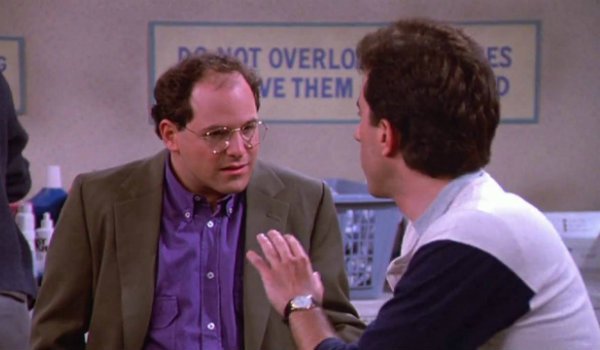
"You Can't Over-dry!"
What's the Context?
One of the most common tropes in the history of Seinfeld's run was Jerry and George going back and forth discussing menial tasks. It became a tried and true aspect of the show, and one of the first fluffy examples was laundry-based, with the "if you can't over-wet, you can't over-dry" exchange coming during an argument over whether or not you can dry your laundry too much.
How We Use It Today
This one is pretty simple. If you're a Seinfeld fan and you have ever done laundry, then there's a pretty good chance that you have reverted to this exchange over the years to question whether or not your clothes are getting too dry. It also works in any situation involving an insipid question or assumption.
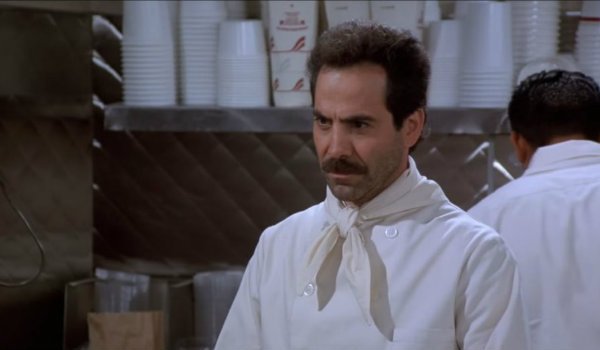
"No Soup For You!"
What's the Context?
Despite his angry and generally intolerant persona, The Soup Nazi has handily become one of Seinfeld's most enduring one-off characters. Between his seething anger and his odd affinity for Kramer, he was an instant classic worthy of long lines. His delicious soup was impossible to resist, but if you made him angry... well... NO SOUP FOR YOU.
How We Use It Today
Look, sometimes it just generally feels nice to be a jerk and withhold something from one of your enemies or jerk friends. If they do something to upset you, and then somehow need something from you, just remember The Soup Nazi's mantra, though be wary about actually saying it aloud in situations that don't involve broth-based meals: "No soup for you!"
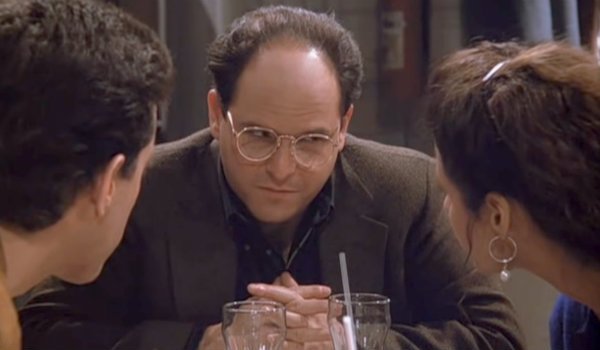
"The Jerk Store Called..."
What's the Context?
For all of his skill in the realm of lying, George Costanza was never known for his quick wit. After getting compared to a shrimp in "The Comeback," he bent over backwards to try and recreate a situation in which he could finally use his post-fabricated comeback, "Well, the jerk store called, and they're running out of you!"
How We Use It Today
Although the Seinfeld version of the "jerk store" was primarily used as a comeback for a particular insult, it has grown to have a much wider usage since Seinfeld. These days, if someone is getting on your nerves, you can pretty much use "jerk store" in your opening salvo and get points for a sick burn AND a solid Seinfeld reference.
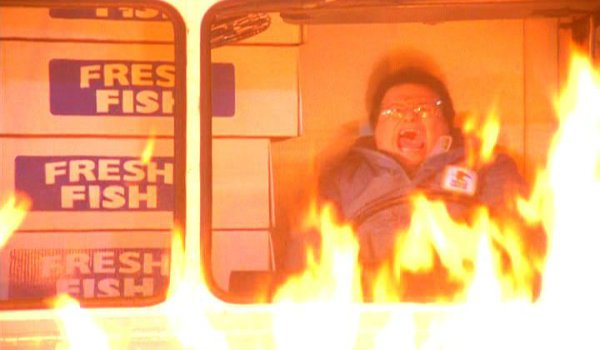
"Oh, The Humanity!"
What's the Context?
Okay, so this one sort of feels like cheating because it is not technically an original Seinfeld line, having first been remembered during the radio broadcast during the Hindenburg disaster. But Newman screaming "Oh, the humanity!" as his mail truck erupts in flames at the end of "The Pothole" has handily become one of Seinfeld's most iconic and hilarious moments.
How We Use It Today
This one is pretty much the opposite of "That's a shame," in the sense that it is what many of us die-hard Seinfeld fans scream when something very, very bad happens to us instead of other people. You may not have found yourself in a flaming mail truck lately, but it is still applicable to many of life's unfortunate moments. Oh, the humanity indeed, Newman.
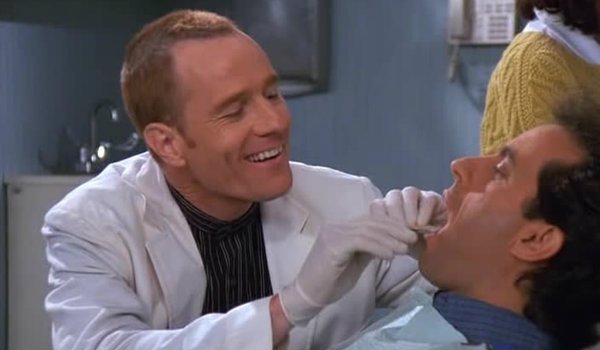
"You're An Anti-Dentite."
What's the Context?
Jerry Seinfeld developed a long-standing rivalry with Bryan Cranston's Dr. Tim Whatley over the course of Seinfeld's run, but arguably no issue caused a more significant rift between them than Whatley's decision to convert to Judaism seemingly just to make jokes. The whole thing spirals out of control until people eventually accuse Jerry of being a bigot against dentists, a.k.a an "anti-dentite."
How We Use It Today
Even though many of us don't have rivalries with our oral hygienists, plenty of us still don't like going to the dentist. For those of you who share that phobia, congratulations; you're an anti-dentite.

"Yadda Yadda Yadda..."
What's the Context?
The catchphrase first achieved fame when a woman George Costanza was dating constantly used it to skip over various portions of her stories -- eventually leading George to assume that she was cheating on him, when she was actually just a thief. So it goes.
How We Use It Today
A predecessor to TL;DR, "yadda yadda yadda" has kept its purpose and usage relatively unchanged since first reaching mainstream quotability on Seinfeld. It still generally means "long story short," and its primary purpose is to allow us to skip over parts of a story that might be boring or unsuitable for specific audiences. These days you can yadda yadda anything -- from lobster bisque to sex.
Aside from that, make sure to listen to The Cord Cutter Podcast to hear what we have to say about the world of streaming content. Moreover, you can check out our guide to all of this year's canceled TV shows -- such as @midnight and The Carmichael Show -- to keep up with all of the shows that have left us this year.
Originally from Connecticut, Conner grew up in San Diego and graduated from Chapman University in 2014. He now lives in Los Angeles working in and around the entertainment industry and can mostly be found binging horror movies and chugging coffee.

